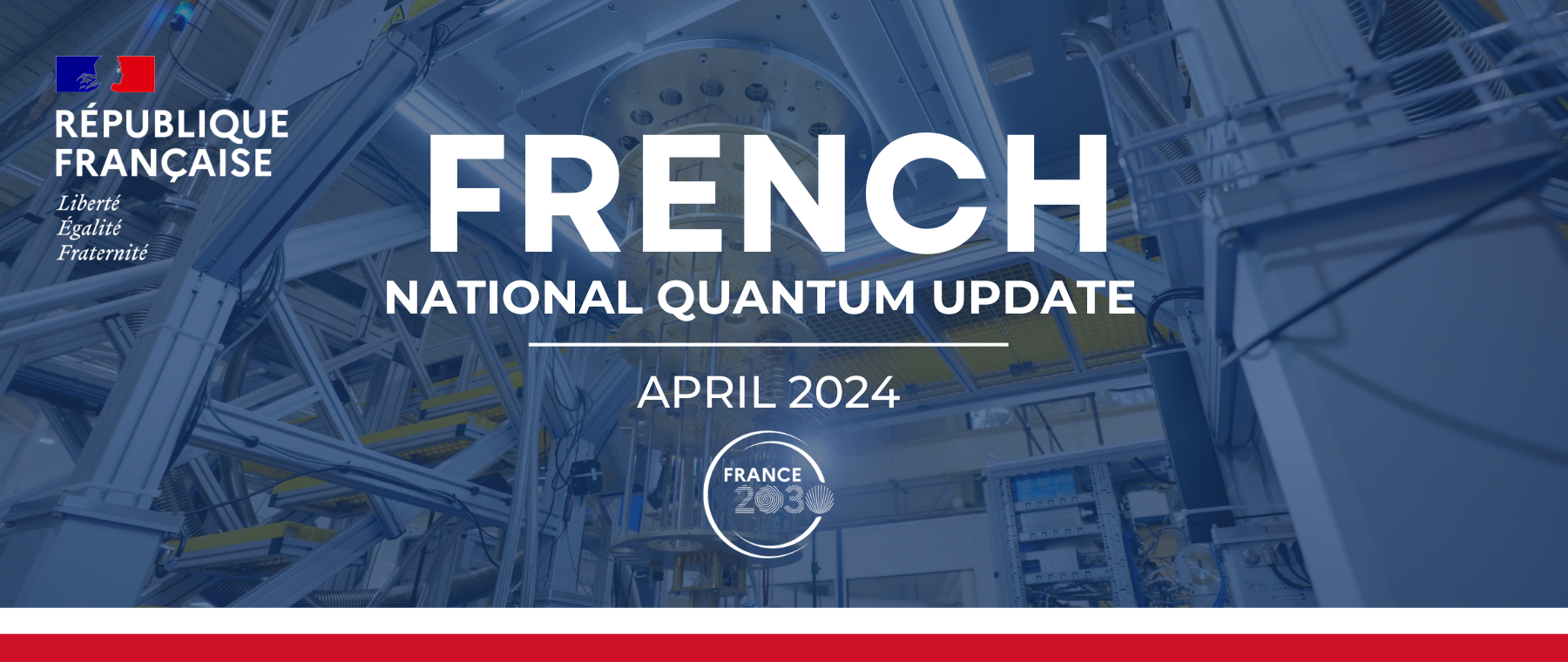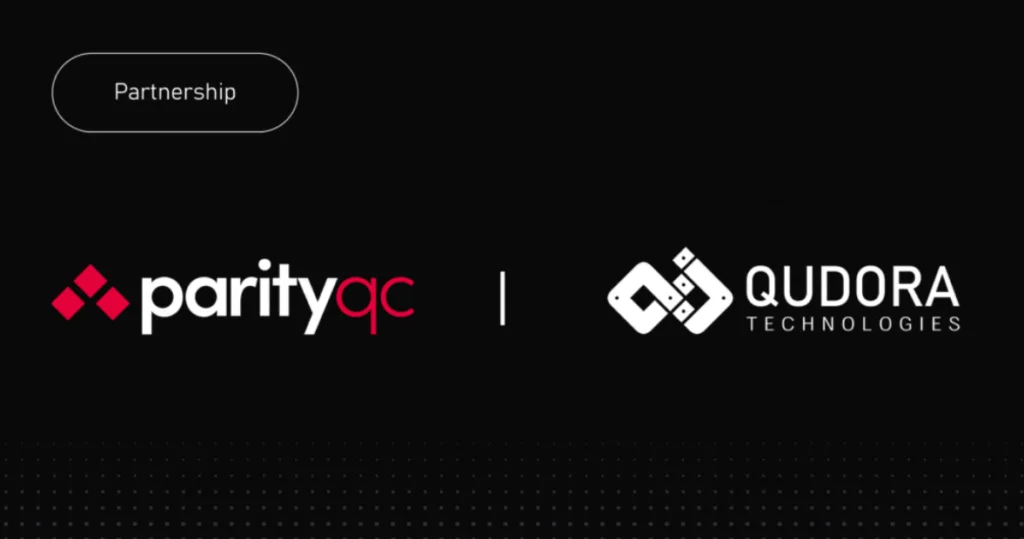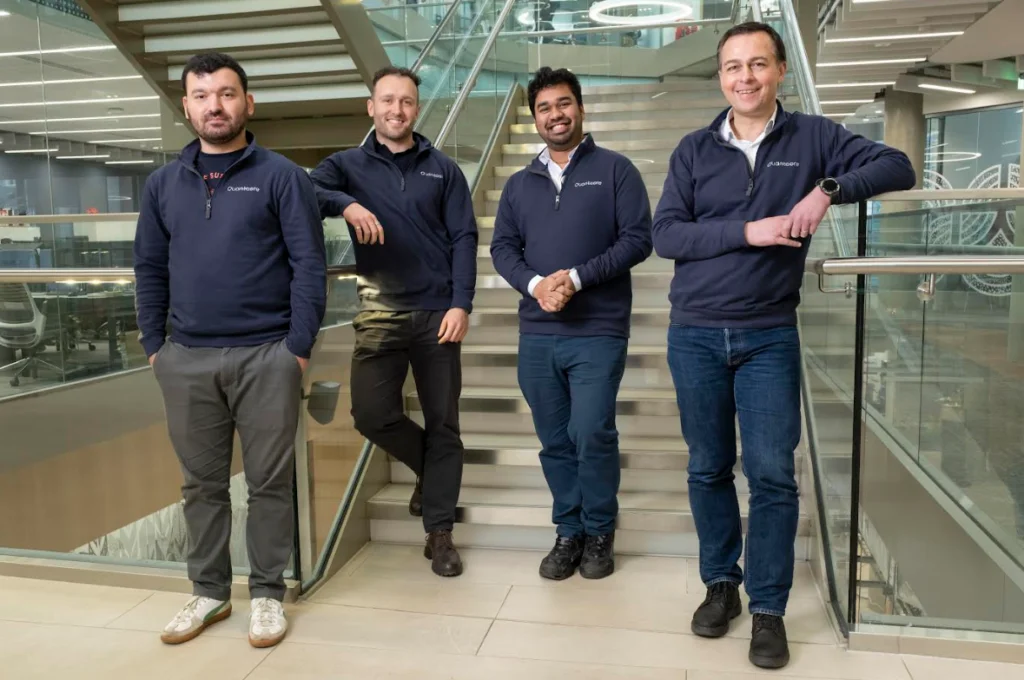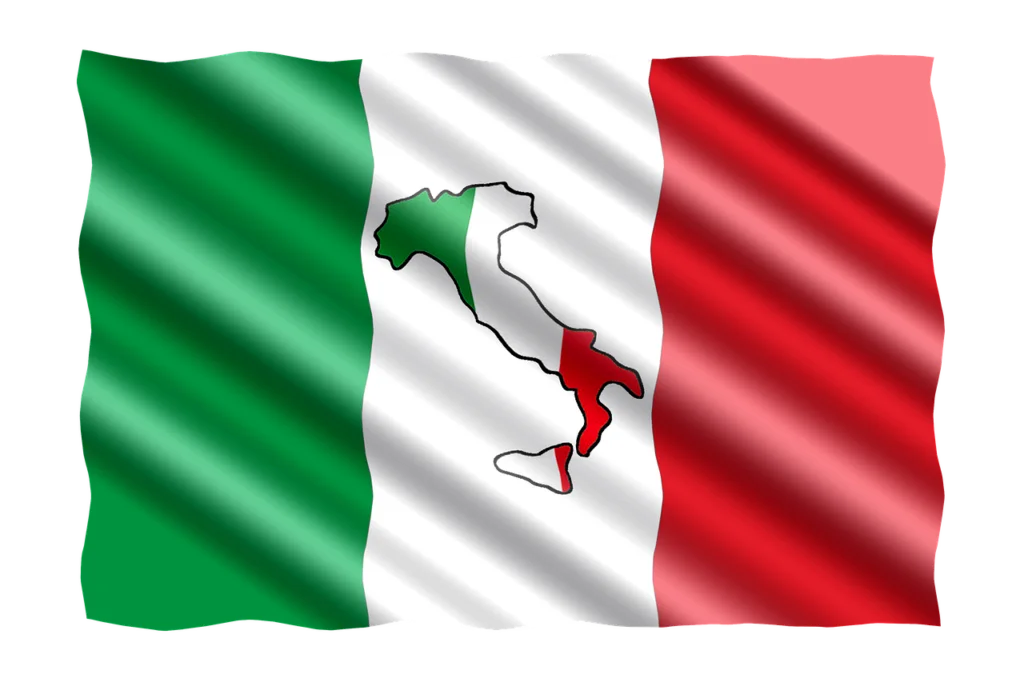Executive Summary
There was no spring break for the push to make France one of the global leaders in quantum technology. Paris-based Quantonation was one of the flag bearers for quantum investment this month. The pioneering venture capital firm announced the first closing of Quantonation II, the second early-stage fund reaching €70 million. Christophe Jurczak, Managing Partner, or Quantonation, didn’t sound like a leader of a team that would be taking a break — spring or otherwise — anytime soon, saying:”This will also be a great opportunity to expand the team and deepen our scientific expertise beyond our current focus. We’re looking forward to a bright future for the quantum industry.”
Policy
Quantum Among the Key Takeaways in Emmanuel Macron’s speech on Europe at the Sorbonne
In terms of economy, the French president wants to see the European Union’i become d’i by 2030 a world leader, with some dedicated financing strategies, in five strategic sectors of tomorrow: artificial intelligence, quantum computing, space, biotechnologies and new energies (hydrogen, modular reactors and nuclear fusion).
European Commission Publishes Recommendation On Post-Quantum Cryptography

The European Commission has published a Recommendation on Post-Quantum Cryptography to encourage Member States to develop and implement a harmonised approach as the EU transitions to post-quantum cryptography. This will help to ensure that the EU’s digital infrastructures and services are secure in the next digital era. While quantum technologies will bring many economic and societal benefits, advances in quantum computing are expected to make it easier for malicious actors to access sensitive data, unless we advance our cryptography.
French Government Gives Nation Quantum Strategy Update
Three years into President Macron’s ambitious $1.9 billion national quantum strategy, French companies make 20% of all the quantum computers in the world and France has 15% of the global quantum workforce. Delivering an update on the program at the Q2B Paris event, secretary general for investment Bruno Bonnell said 2023 showed some critical results for quantum computers and fault tolerance is edging closer in 2024.
Business
Quantonation Announces First Closing Of Its New €200 Million Fund Dedicated To Quantum Technologies
Quantonation Ventures announces the first closing of its second early-stage fund dedicated to Quantum Technologies, Quantonation II, at €70 million of the €200 million target. Quantonation is at the center of the emerging Quantum Tech industry, and is already investing globally in new companies from this second fund.
11 quantum computing startups that VCs are watching in Europe
European quantum startups are on the rise. Last year, while many VC-backed companies in the region were struggling to raise funds, Europe’s quantum startups actually saw investments grow by 3% to reach $781m — more than three times the amount raised in the sector in North America ($240m). Several French companies made the list.
Quantum computing: The French startup racing against US tech giants
In the increasingly competitive world of quantum computing, Paris-based startup Pasqal is starting to make a name for itself. Governments are showing a strategic interest in its potentially revolutionary technology: it’s so far raised $140m from investors including the European Innovation Council, Singaporean sovereign wealth fund Temasek, France’s state bank Bpifrance and its Ministry of Defence.
Thales And SeQure Quantum Sign Agreement To Boost Their Technologies In The Space Market
In an interconnected world, cybersecurity and innovative technologies must be present from the depths of the ocean to the vastness of space and cyberspace. In this context, Thales and SeQure Quantum understand that to provide solutions and services in line with today’s and tomorrow’s technological demands, they must collaborate to deliver innovative, high-value solutions.
Pasqal, a global leader in neutral atom quantum computing, and Welinq, a pioneering quantum networking company, today announced a groundbreaking partnership set to bring new standards in the quantum computing industry. This collaboration leverages the distinctive strengths of both companies to address some of the most challenging and exciting problems in neutral atom quantum computing.
Six French Cyber Players Partner To Design Secure Communication Networks
The RESQUE consortium brings together six French companies and organisations with complementary roles in the cybersecurity field: technology leader Thales, the consortium’s coordinator; TheGreenBow, an SME dedicated to software development for secure communication systems; CryptoExperts, an SME specialising in cryptography; the start-up CryptoNext Security; the French information system security agency ANSSI; and Inria, the French national research institute for digital science and technology, which also represents six academic institutions, namely the University of Rennes, ENS (École Normale Supérieure) Rennes, the French national scientific research centre (CNRS), ENS Paris-Saclay, Université Paris-Saclay and Université Paris-Panthéon-Assas.
How Boards Can Prepare for Quantum Computers
Quantum computing on the level that poses a threat to current cybersecurity measures is still years off. Here’s what enterprises can do now to avoid future disruptions. Jérémie Guillaud, chief of theory at French quantum computer manufacturer Alice & Bob, says companies should identify which systems and data eventually could be vulnerable to an attack. He suggests planning to have to defend against an attacking machine with 1 million qubits. That provides a starting point: setting a goal to migrate vulnerable systems to a quantum computer with more than 1 million qubits.
Research
CEA-Leti Lays Groundwork for Industrial-Scale Quantum Computing
CEA-Leti has a long history working on both quantum computing and the enabling technologies, including cryoelectronics, in which transistors operate at extremely low temperatures. While the organization has worked on different ways of implementing quantum bits, including photonic and superconducting qubits, most of its research is focused on spin quantum bits, which will be commercialized through its one-year–old spinoff, Quobly.
In quantum computing, IRIF is mainly recognized for its contributions to the design and analysis of algorithms, the study of computational models, and the foundations of programming languages. In addition, in 2014, IRIF co-founded the Paris Center for Quantum Computing (PCQC) in Paris. This center brings together computer scientists, theoretical and experimental physicists and mathematicians who work in work in and around Paris.
Education and Events
Matter Colloquium: Quantum Neuromorphic Computing with Superconducting Circuits
A colloquium hoster by Imperial College featured speaker Dr. Danijela Marković from the Laboratoire Albert Fert (CNRS,Thales), Université Paris/Saclay, France. Dr. Marković and her team are conducting fantastic research exploring the possibilities of using quantum phenomena such as superposition and entanglement to build a new class of machine learning hardware, using quantum superconducting circuits as a platform for quantum neural networks and reservoir computing.
Research was presented at this specialized European event for optical instrumentation with the latest advances in optical systems applications, materials, and processing. The event was held 7 – 11 April at Strasbourg, France.















